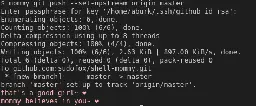Anubis now supports non-JS challenges
moonpiedumplings @ moonpiedumplings @programming.dev Posts 32Comments 606Joined 2 yr. ago
home-manager now has a built in option to wrap packages with NixGL, for non-nixos systems
home-manager now has a built in option to wrap packages with NixGL, for non-nixos systems
home-manager now has a built in option to wrap packages with NixGL, for non-nixos systems
Is there any way on KDE, I can "click through" a partially transparent window to interact with the window behind it instead?
Is there any way on KDE, I can "click through" a partially transparent window to interact with the window behind it instead?
Is there any way on KDE, I can "click through" a partially transparent window to interact with the window behind it instead?
There doesn't appear to be a limit to the maximum size the KDE cursor can get when you shake it.
There doesn't appear to be a limit to the maximum size the KDE cursor can get when you shake it.
There doesn't appear to be a limit to the maximum size the KDE cursor can get when you shake it.
shell-mommy is a program that encourages users while using command line applications.
shell-mommy is a program that encourages users while using command line applications.





This site doesn't seem to let me link to a specific comment: https://lobste.rs/s/aa7ske/anubis_now_supports_non_js_challenges
But on that page, the creator has a comment explaining that the meta refresh challenge does more than just reload the page and wait. They explain that it actually checks if the browser supports modern desktop browser features like gzip encoding, cookies, and more that's not documented.